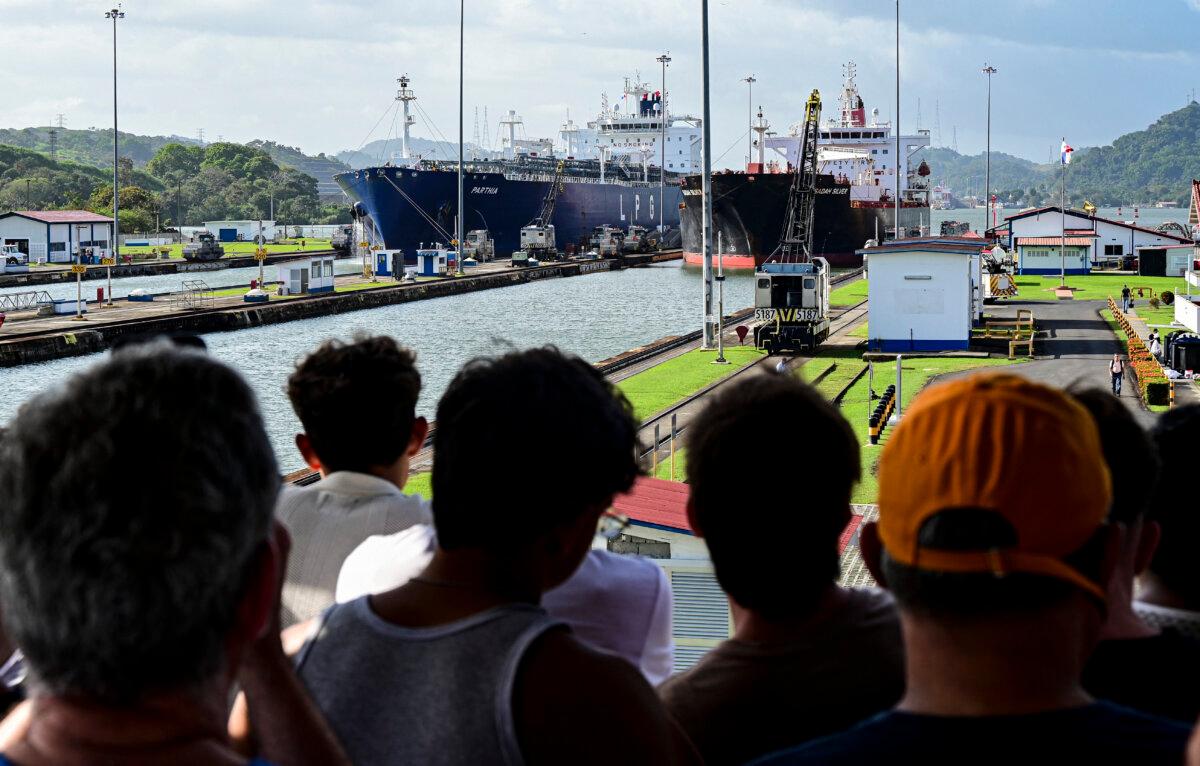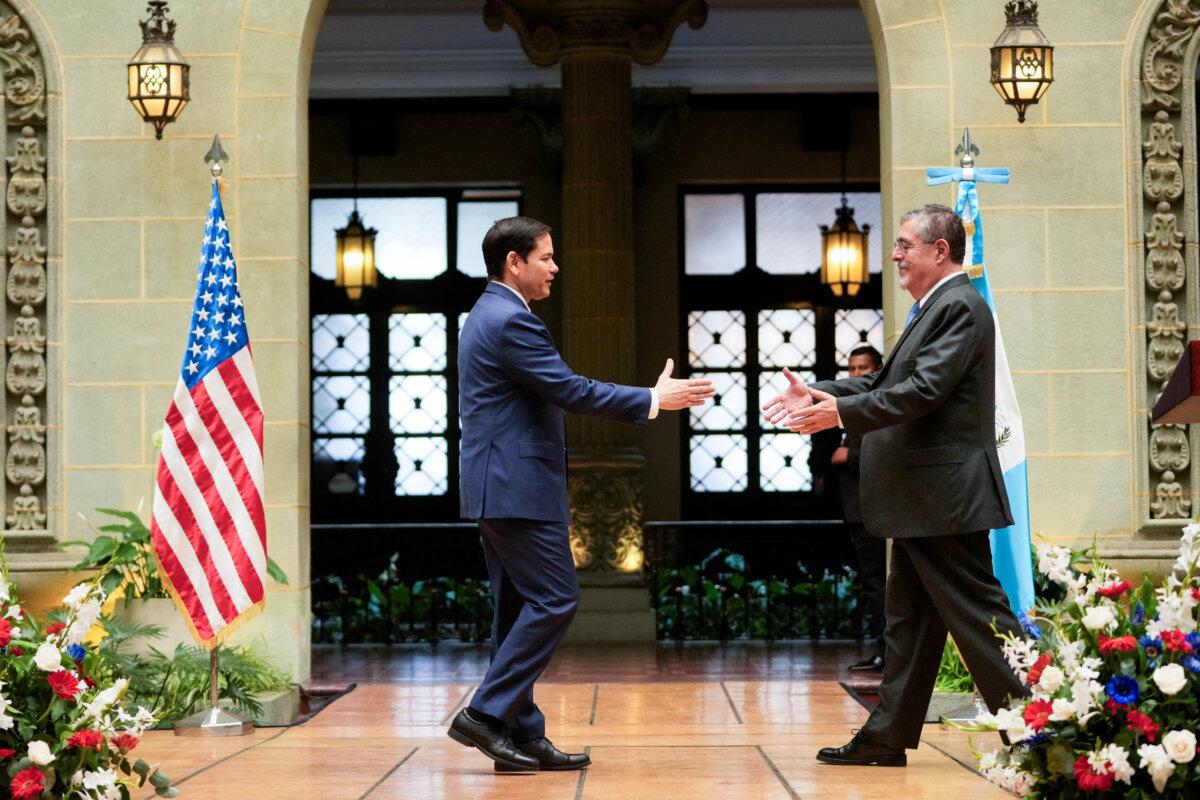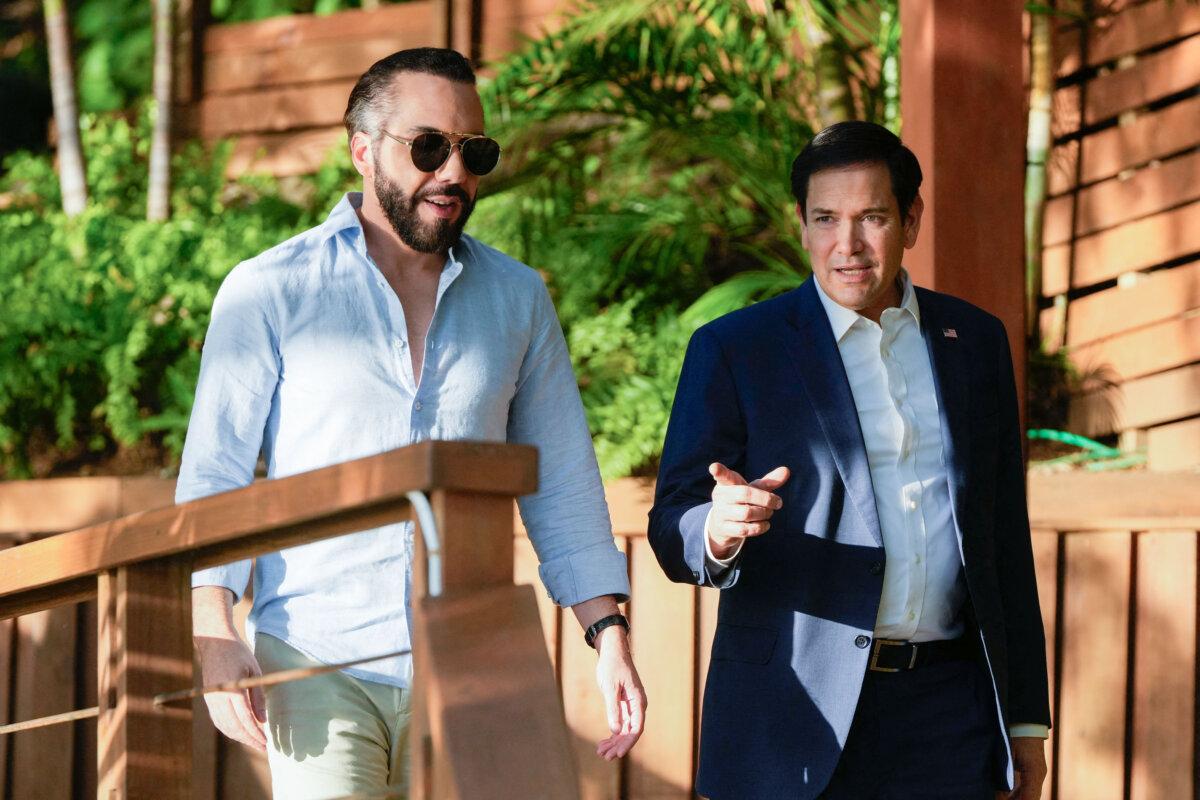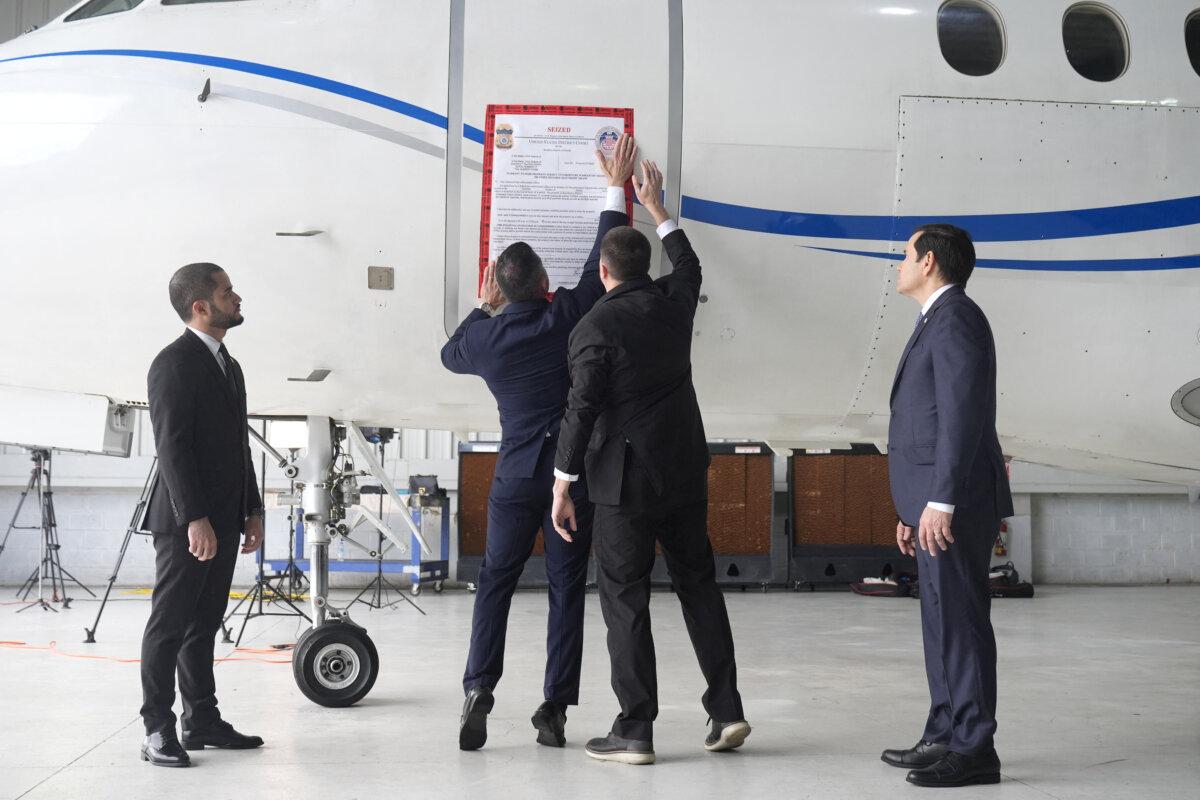Rubio visited Panama, El Salvador, Costa Rica, Guatemala, and the Dominican Republic in his first trip abroad as secretary of state.
Newly sworn-in Secretary of State Marco Rubio returned to the United States on Feb. 7, concluding a five-nation tour of Central America and the Caribbean.
Rubio made stops in Panama, El Salvador, Costa Rica, Guatemala, and the Dominican Republic. The trip was Rubio’s first since taking office and as President Donald Trump’s administration seeks to increase border security, deport illegal immigrants, and bolster U.S. ties in the Western Hemisphere.
“The Western Hemisphere has, unfortunately, been overlooked throughout the years. At times, many of our regional allies felt like they were better off being our enemies. That’s no longer the case,” Rubio said in a video message before setting out for the trip.
Rubio urged increased collaboration between the United States and its neighbors to the south.
“Our mutual bilateral priorities can help end the era of illegal mass migration, achieve economic growth, and bolster both regional stability and regional security,” he said.
Panama Cuts China’s Belt and Road Deal
Rubio first stopped in Panama, where the Trump administration has placed increased attention on control of the Panama Canal and its ties with the Chinese Communist Party.
The United States negotiated the rights to dig the canal in 1903, after supporting Panama in its war of independence from Colombia. The United States retained control over the canal and the surrounding canal zone until 1979 when President Jimmy Carter agreed to turn it over to Panama.
Trump has framed his talk of reclaiming the canal around concerns over China’s influence over the key waterway.
“We gave the Panama Canal to Panama. We didn’t give it to China,” Trump said at a Jan. 6 press conference. “They’ve abused that gift.”
After meeting with Rubio on Feb. 2, Panamanian President José Raúl Mulino announced his country will not renew a 2017 memorandum of understanding with the Chinese Communist Party. The agreement entailed Chinese infrastructure projects and investments in Panama as part of its Belt and Road Initiative.
U.S. officials and other critics have referred to the Belt and Road Initiative as a form of “debt-trap diplomacy” employed by the CCP.
Rubio praised Panama for agreeing to end its participation in the Belt and Road Initiative as a step to improve U.S.–Panama relations and a “free Panama Canal.”

People look at two cargo ships entering the Miraflores Locks of the Panama Canal in Panama City on Jan. 22, 2025. Martin Bernetti/AFP via Getty Images
The decision to not renew the deal raised Beijing’s ire and the CCP’s foreign ministry spokesman blamed the United States for its “pressuring and coercion” over Panama.
Canal Fees Still Up in the Air
While Panama has agreed to cut ties with China’s Belt and Road Initiative, the Central American country isn’t exactly on the same page as the Trump administration regarding the canal.
Mulino further said he lacks the legal authority to lower or exempt anyone from the canal transit fees.
El Salvador and Guatemala to Take Deportees
Guatemala and El Salvador are positioned to become key partners with the United States as the Trump administration looks to ramp up deportations of illegal immigrants.

Secretary of State Marco Rubio and Guatemalan President Bernardo Arevalo reach out to shake hands at the end of their joint news conference at the National Palace in Guatemala City, on Feb. 5, 2025. Mark Schiefelbein/Reuters
Rubio and Arévalo both said they have yet to work out some details of this expanded deportation arrangement.
Arévalo had previously said his predecessor’s Safe Third Country agreement during Trump’s first term was “absolutely inadequate.” He said a more regional approach was necessary but did not rule out the possibility of making a similar deal.
He said a Guatemalan government delegation is planning to visit Washington in the coming weeks. The goal, he said, is “to create agreements in terms of economic productive development and investment to ensure tangible impact, positive impact for Guatemala.”
Arévalo’s decision to agree to more deportation flights, including of non-Guatemalan deportees, was announced a day after Rubio said El Salvador will also take in deportees from the United States, including not just illegal immigrants but criminal U.S. citizens and legal residents. The secretary of state didn’t offer further details about the circumstances that would warrant U.S. citizens being sent to El Salvador.
Rubio and Bukele announced the new deportation arrangement as they signed a civil nuclear agreement.

U.S. Secretary of State Marco Rubio (R) meets with El Salvador’s President Nayib Bukele at his residence at Lake Coatepeque in El Congo municipality, El Salvador, on Feb. 3, 2025. Mark Schiefelbein/AFP via Getty Images
Dominican Republic Appoints Drug Czar, Facilitates Plane Seizure
Rubio stopped over in the Dominican Republic for the last leg of his trip.
During his stopover in the Dominican Republic, Rubio also joined U.S. officials as they attached a seizure warrant to the side of a luxury jet allegedly belonging to the government of Venezuelan leader Nicolás Maduro.

A “seized” sign is placed on a Venezuelan government airplane during a press conference where U.S. Secretary of State Marco Rubio announced its seizure at La Isabela International Airport in Santo Domingo, Dominican Republic, on Feb. 6, 2025. Mark Schiefelbein/Pool via Reuters
Aldgra Fredly, TJ Muscaro, and The Associated Press contributed to this report.
Original News Source Link – Epoch Times
Running For Office? Conservative Campaign Consulting – Election Day Strategies!


